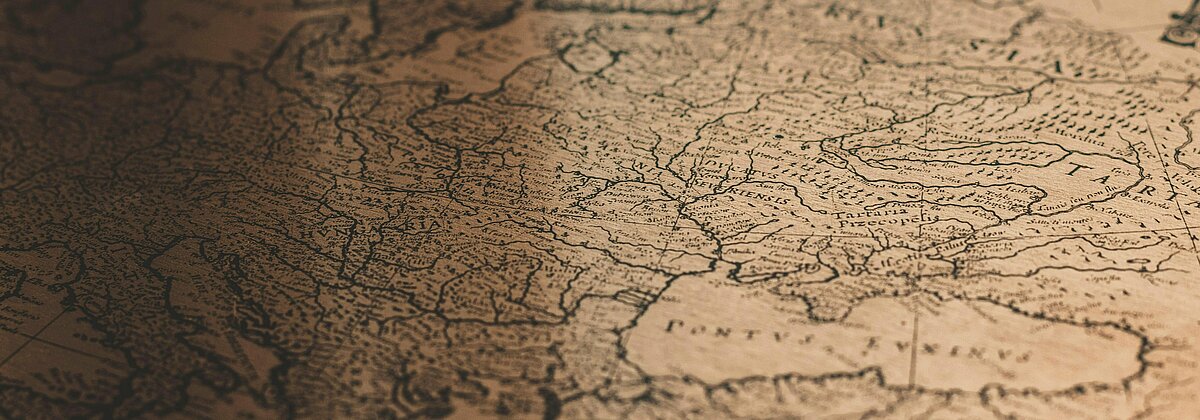


Europe has constantly been reimagined – yet in facing the criminal and destructive war against Ukraine and all the tragedies resulting from it, the need for a more comprehensive rethinking toward a more open-minded and future-oriented cultural imaginary of Europe has become obvious. The Russian war of aggression has revealed the extent to which the existing expertise on countries so often bundled together under the misleading label “Eastern Europe” has been neglected and marginalised. Across Europe in general, but especially in Germany and its western neighbours, relevant research institutes have too often been closed and down-sized.
The countries in question are not “the East”. They lie in the north, south and centre of Europe and all of them belong to the core of the European landscape. Their complex histories are full of entanglements. Yet each history has unique characteristics – resulting in a rich diversity of cultures, academic systems, politics and the perspectives of the respective inhabitants.
Ignorance resulting from a failure to listen to the Europeans living in these diverse landscapes more closely and to engage with their manifold perspectives has had dire consequences. This must not happen again.
The time for new approaches is now. Many steps have already been taken, but we must not stop at “first aid”. The goal must be to establish closer ties across borders and to gain a new understanding of Europe. We – presidents of Academies and Universities, office holders from other academic institutions as well as from politics, and actors from civil society – are resolved to further this goal.
We are convinced that academia must play a key role in such processes. Firstly, it offers the ideal prerequisites for such a transnational agenda because of its standards of openness, curiosity, willingness to cooperate, critical questioning and motivation to perform. Secondly, scholars use their academic expertise to question traditional, seemingly self-evident truths in order to gain new perspectives and insights. Such abilities are urgently needed in the current situation – and they are especially embodied by younger excellent scholars.
We therefore formulate the following theses and declare that we want to move forward in their spirit:
First Signatories
1. Jūras Banys (Lithuanian Academy of Sciences, President)
2. Julia von Blumenthal (Humboldt University Berlin, President)
3. Jean-Pierre Bourguignon (European Research Council, Former President; Centre National de la Recherche Scientifique (CNRS), Directeur de recherche émérite)
4. Helen Eenmaa (Young Academies Science Advice Structure, President)
5. Bohdan Ferens (Ukrainian NGO “Progresylni”/Progressive Teachers, Head)
6. Olga Garaschuk (UKRAINET, Co-founder; German-Ukrainian Academic Society, President)
7. Oliver Günther (University of Potsdam, President)
8. Basil Kerski (European Solidarity Centre Gdańsk, Director)
9. Gisela Kopp (Die Junge Akademie, Chair)
10. Christoph Markschies (Berlin-Brandenburg Academy of Sciences and Humanities, President)
11. Bettina Martin (Minister for Science, Culture, Federal and European Affairs of the State of Mecklenburg-Western Pomerania)
12. Diana Mishkova (Centre for Advanced Study Sofia, Director)
13. Eduard Mühle (European University Viadrina Frankfurt (Oder), President)
14. Marie-Louise Nosch (Royal Danish Academy, President)
15. Jan Ostrowski (Polish Academy of Arts and Sciences Krakow, President)
16. Valentina Sandu-Dediu (New Europe College Bucharest, Rector)
17. Gwendolyn Sasse (Centre for East European and International Studies, Director)
18. Tarmo Soomere (Estonian Academy of Sciences, President)
19. Carsten Schneider (Minister of State for Eastern Germany)
20. Anastasiia Simakhova (Scholar Support Office, Vice-Head)
21. Manja Schüle (Minister for Science, Research and Culture of the State of Brandenburg)
22. Barbara Stollberg-Rilinger (Wissenschaftskolleg zu Berlin, Rector)
23. Olesia Vashchuk (Young Scientists Council at the Ministry of Education and Science of Ukraine, Head)
24. Anatoly Zagorodny (National Academy of Sciences of Ukraine, President)
25. Walter Rosenthal (German Rector's Conference, President)
26. Gideon Reuveni (University of Sussex)
27. Jennifer Orlando (University of Copenhagen)
28. Daniel Siemens (Newcastle University)
29. Monica Dietl (Initiative for Science in Europe)
30. Patrick Arnold (University of Potsdam)
31. Ulrike Kuch (Bauhaus-University Weimar, Vice President)
32. Oliver Reisner (Ilia State University Tbilisi)
33. Otari Gulbani (Central European University)
34. Markus Kaiser (German-Kazakh University, President)
35. Roland Römhildt (Berlin-Brandenburg Academy of Sciences and Humanities)
36. Günter M. Ziegler (Freie Universität Berlin, President)
37. Bénédicte Savoy (Technische Universität Berlin)
38. Ralf von den Hoff (Freiburg Institute for Advanced Studies, Director)
39. Valentyna Savchyn (Lund University)
40. Klaarika Kaldjarv (University of Tartu, Estonia)
41. Luc van Doorslaer (University of Tartu, Estonia)
42. Marek Volt (University of Tartu, Estonia)
43. Anna Grebinyk (Deutsches Elektronen-Synchrotron)
44. Marja Makarow (Academia Europaea, President)
45. Sorin SopAntohi (Orbis Tertius Association Bucharest)
46. Marie Vigneras (Universite de Paris-Cite)
47. Greville Corbett (University of Surrey)
48. Jean Fabiani (Central European University, Vienna)
49. Andras Baldi
50. Tatiama Shchyttsova (Affiliation: European Humanities University)
51. Erol Gelenbe (Institute of Theoretical & Applied Informatics, Polish Academy of Sciences)
52. Jean-Claude Burgelman (Frontiers Research Foundation, Free University of Brussles)
53. David Paterson (University of Oxford)
54. Jörg Rüpke (Max-Weber-Kolleg, University of Erfurt)
55. Lina Navickaitė-Martinelli (Lithuanian Academy of Music and Theatre)
Click here to download the manifesto "Reclaiming Europe". (PDF, 239KB)
Roland Römhildt
Personal Assistant to the President / Officer for International Relations
Presidential Office
Tel.: +49 (0)30 20370 583
roland.roemhildt@bbaw.de
Jägerstraße 22/23
10117 Berlin
Conversation with Christoph Markschies (UKR)